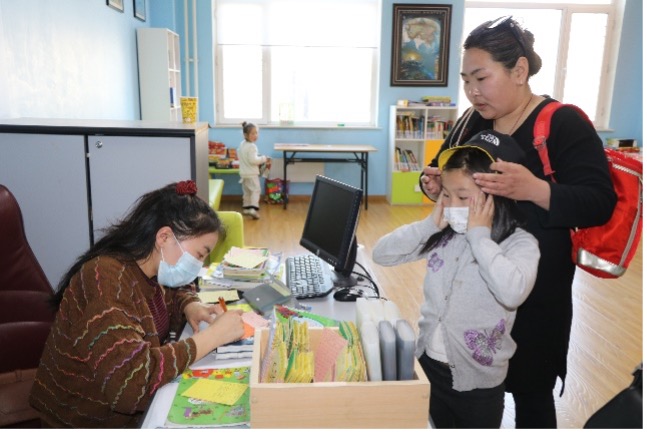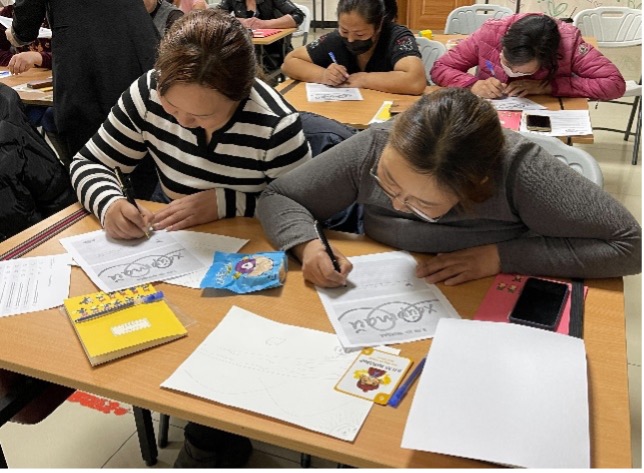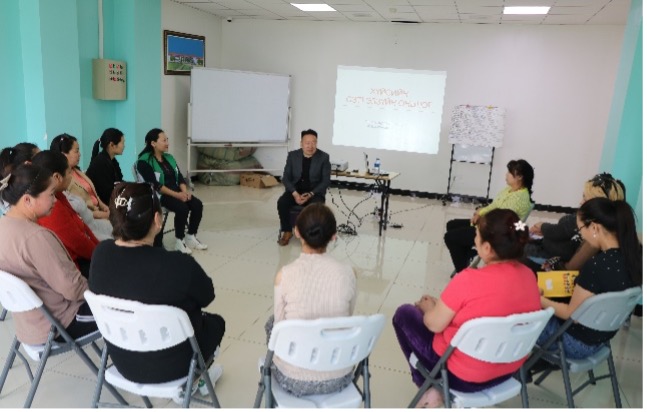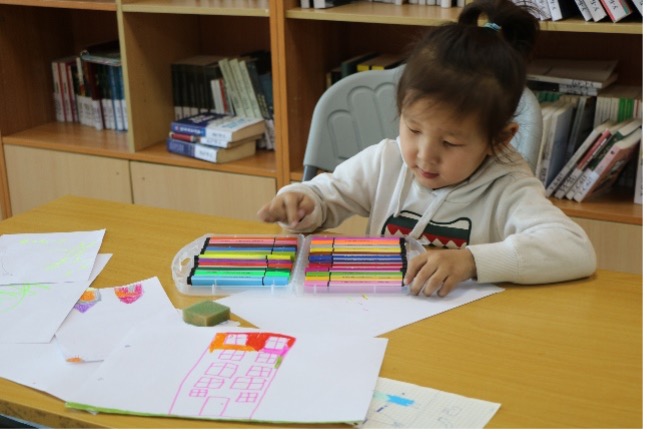Mongolia: Let the family connection even stronger
.jpg)
A Mongolian single mother shared that she was always sad to hear her children said to her “if dad is still here... or if dad can do it, why can’t you...” She often questioned how could she take care of her children by herself.
Single mothers are common in Mongolia. According to the National Statistics Office of Mongolia, there are around 70,693 households that are led by single mothers in 2021, around 8% of the entire household number in the country. Among 18,730 single mother households in Ulaanbaatar, most of them are raising 3 to 5 children by themselves, and the children’s age is around 0-14. This just shows how huge a responsibility these mothers are carrying.
Seeing this issue, the Mongolian government had decided to provide free children daycare for 24 hours per day, 5 days per week, and hoped to stimulate a good environment for children to grow. However, because of the different perspectives on education, the environment of the daycare center, and children's development, many parents still wanted to take care of their children by themselves. As a result, many parents who had preschoolers often need to stay at home to care for their children and lived on the social welfare provided by the government.
We saw the intersection between economic and parental pressure often created issues such as authoritarianism, the use of battering and scolding as education, and emotional pressures happening in the single-mother families TFCF Mongolia Branch Office assisted.
TFCF Mongolia Branch Office started to provide Parenting education and support group projects in 2020. We invited single mothers who have preschoolers to participate in our activities. If there was no one who could take care of their children while they were participating in the activities, the mothers could also take their children to class, and we had professional caregivers who could take care of them. The goal of this project was to improve the single mothers’ parenting skills and to relieve the emotional pressure they accumulated over a long period of time. We wanted to help the parents to use a positive attitude and perspective to lead their children to grow and draw them closer to their children.

One participant shared that, through participating in the courses, "I feel like I am slowly changing how I interact with my children, and I feel like I understand them better, and I feel I am closer to them. Ever since I had children, I didn’t have many chances to learn and study. But now I come to class every week, which makes my life even fuller."
We put many concepts of children development in the courses and let parents understand the knowledge and indicators of how preschoolers develop. Many parents had already found out that their children had the issue of development delay, but they were often constrained by the traditional perspectives that these issues would be solved when they grew up and didn’t seek professional help or treatment. As a result, many children missed the timing for treatment, which impacted their learning and development.
On top of the constraints of dire economic conditions and traditional ideologies, taking care of multiple children often made the parents have too much on their plate. Because of this, parents were getting used to using beating and scolding to educate their children. This situation would only create a gap in their parent-child relationship, and their children would stop sharing their lives with them anymore.
After participating in the courses and support groups, one participant shared that, "I started to use different methods to communicate with my children. Besides learning about their interests and playing with them as much as I can, I tried to take more time listening to them and standing in their shoes. Whenever my children did something good, I would give them praise and encouragement, and I think I am getting closer to my children!"
During courses, the teacher arranged a time to let the parents write letters to their children and let them use words to share what they were too shy to say in person. Some of them even cried while writing, and regretted that they were too busy to express their love and caring for their children. Through this activity, we let the parents understand that there was a different way to communicate with their children besides physical violence and scolding.

In order to improve the parent-child relationships, we arranged a one-time parent-child trip and let the families who could not afford to have a chance to go on a trip and create valuable memory together. Moreover, those who have been traumatized and experienced domestic violence could apply for consultation and seek help from professional therapists.
Whenever the courses ended, social workers would take extra time to check with the parents to let them reflect on what they had learned that day, and get a sense of how they were doing by talking with them. The social workers share that the parents looked better after participating in the courses. They would discuss with each other about problems with parenting during break-time, share job opportunities and become a support network with each other. We provided a space for them to express their feeling, which filled them with positive energy and a sense of belonging.

Our parenting education is in connection with child development. The aim of the project and support group is to let the parents understand how to act in the role of caregivers, which means that they not only need to take care of their children, but also need to understand the personalities and needs of their children. Whenever their children are facing difficulties, they have to provide support and encouragement and let their children feel rewarded and safe. Most importantly, parents need to take care of their own mental and physical conditions. Only if they have taken care of themselves, can they have enough patience and strength to take care of their children.
If you want to support our work in the Mongolia, you can join us here.
